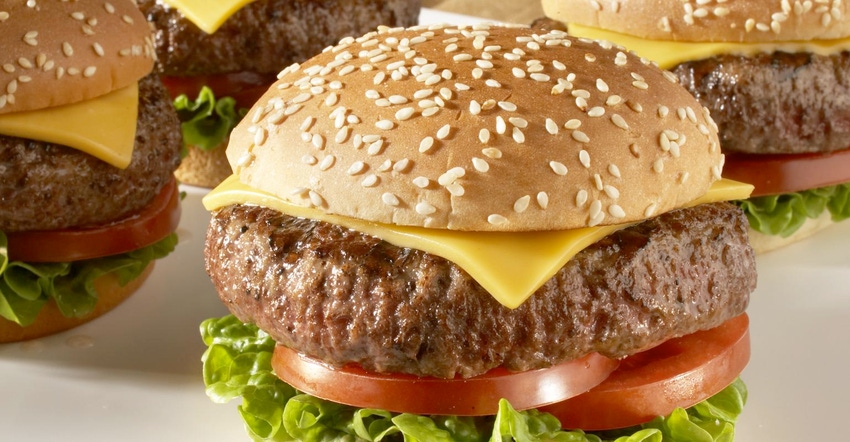Earth Day 2019: Forget cow burps; let’s talk about food waste
As the world celebrates Earth Day, here are some practical tips for reducing food waste to impact our environmental footprint.
April 19, 2019

Earth Day is April 22 — it’s a day to celebrate our planet and a reminder to all of us that we can do better to utilize our natural resource in hopes for a better tomorrow.
Traditionally on this day, I would write a blog post to counteract the endless narrative about how beef cattle are destroying the planet. From activists to the media to plant-based protein companies and fake meat manufacturers, the hysteria surrounding climate and sustainability has placed the blame solely on cattle. All the while largely ignoring major contributors to greenhouse gas emissions — transportation and electricity, just to name a few.
I have spent a great deal of time and energy tackling this topic over the years. I firmly believe our consumers need to know how cattle grazing is critical for our ecosystem; how cattle are able to graze cellulosic materials found on steep, hilly, rocky terrain and convert it into nutritional beef and byproducts; and how the true definition of “sustainability” is ranchers caring for the same land for more than a century and watching that land be fruitful, productive and regenerative year after year.
Yes, I’m passionate about conservation. I’m a firm believer in caring for our land today, so it can continue to serve us tomorrow and 100 years from now. To me, the American beef producer embodies what Earth Day is all about.
But that’s not what I want to talk about today.
As we celebrate Earth Day 2019, I want to talk about an issue that each and every one of us can take immediate action on — food waste.
The USDA estimates that the American consumer wastes 30-40% of the food supply. Yes, you read that right. Read it again. We waste more than one-third of the food we produce in this country.
This waste equates to 133 billion pounds and $161 billion worth of food, according to data from USDA’s Economic Research Service.
To give you a better idea of how much is wasted each year, the EPA guesstimates 218.9 pounds of food is wasted per person annually.
On the front end, food waste is wilted lettuce in the back of the refrigerator, forgotten leftovers, oversized helpings tossed in the trash. On the back end, it’s 45 trillion gallons of water used to produce this wasted food. That’s 24% of all water used in agriculture, according to the World Resource Institute.
The USDA’s Office of the Chief Economist says this food waste is far-reaching and has tremendous impact on our nation’s food security, resource conservation and climate change.
Here’s how:
Wholesome food that could have helped feed families in need is sent to landfills.
The land, water, labor, energy and other inputs used in producing, processing, transporting, preparing, storing, and disposing of discarded food are pulled away from uses that may have been more beneficial to society – and generate impacts on the environment that may endanger the long-run health of the planet.
Food waste, which is the single largest component going into municipal landfills, quickly generates methane, helping to make landfills the third largest source of methane in the United States.
So what can we do to address this issue at home? The old adage, waste not, want not surely applies.
Healthline offers 20 practical tips for doing your part to curtail this waste.
Shop smart.
Store food correctly
Learn to preserve
Don’t be a perfectionist; eat the bruised apple
Keep your fridge clutter free
Save leftovers
Eat the skin
Eat the yolk
Be a seed saver
Blend it up
Make homemade stock
Perk up your water
Keep your serving sizes in check
Get friendly with your freezer
Understand expiration dates
Compost
Pack your lunch
Don’t toss the coffee grounds
Get creative in the kitchen
Pamper yourself with a homemade scrub
Each tip is explained in detail. You can read the entire article by clicking here. Some are far-fetched and others might be worth trying. For example, I had no idea coffee grounds could be used as plant fertilizer in the garden or as a mosquito deterrent in the yard.
This Earth Day, let’s forget the Meatless Monday banter and focus on something that would have a direct impact on our planet — reducing our food waste.
The opinions of Amanda Radke are not necessarily those of beefmagazine.com or Farm Progress.
About the Author(s)
You May Also Like




.png?width=300&auto=webp&quality=80&disable=upscale)
